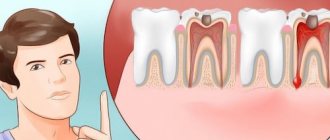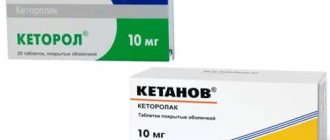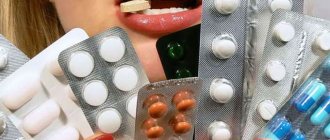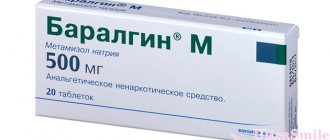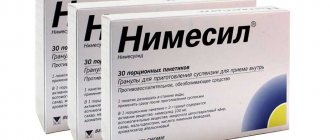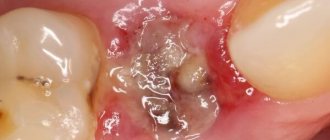Toothache occurs unexpectedly. In the best case, the visit to the dentist will be tomorrow, and all this time you need to endure. And sometimes attacks of toothache occur outside the city or on vacation. In such cases, you cannot do without painkillers. Modern means allow you to quickly and relatively permanently relieve toothaches. In addition, many pain medications are available without a prescription and at affordable prices. Thus, medications for toothache are the most convenient and cheapest way to painlessly wait for a visit to the doctor, where the cause of the toothache is already eliminated.
Will it help?
Of course, before taking painkillers for a toothache, you should assess the degree of pain and think about the potential consequences of taking medications. In fact, according to statistics, very few people think about these aspects as soon as they experience pain in the oral cavity.
The most important fact is that relieving toothache with tablets will only be a temporary solution. This approach will help alleviate the general condition, but only for a certain time.
It should also be noted that tooth pain is often accompanied by concomitant symptoms, which manifest themselves in inflammation of the gums, cheek area, increased body temperature and a feeling of general malaise. Many of the tablets help relieve secondary manifestations, but have no effect on the cause.
This is why in most cases a visit to the dentist will still be required. After all, the painkiller will simply reduce the level of pain, but not for long. Moreover, in many situations the ongoing disease will only gain momentum and the pain will increase. Therefore, there is no point in enduring without visiting a doctor for a long period with persistent toothache.
In what cases is analgin prohibited?
This drug has a solid list of contraindications. Always keep the package insert in the medicine package so that you do not lose these important notes about taking the medicine. Some problems may appear over the years, and you need to check every time whether you can take this medicine given your current state of health.
Analgin has a number of contraindications
For whom analgin is contraindicated:
- children under one year old;
- people diagnosed with aspirin-induced asthma;
- people with bronchial diseases;
- people with digestive disorders;
- patients with anemia and leukemia;
- people suffering from peptic ulcers;
- people with kidney and liver diseases.
It should be emphasized that analgin is a prohibited drug for pregnant women. Neither analgin nor aspirin can be taken for the entire 9 months. Some components of the drug may adversely affect the development of the baby. In the same way, analgin is prohibited during the lactation period, because the aggressive components of the medicine will reach the baby through milk.
Analgin is prohibited during pregnancy
Types of strong painkillers for tooth pain
For toothache, different types of painkillers can be used. Let's list:
- Tablets are used to influence the pain epicenter. They can dull the discomfort for several hours.
- The powder is gentle on the gastrointestinal tract and has anti-inflammatory and antipyretic effects.
- Toothpaste helps with increased sensitivity of tooth enamel. That is, if there is caries, pain relief will not occur. In the first case, it is enough to brush your teeth regularly.
- The gel is also able to temporarily relieve toothache due to its local anesthetic effect.
No pain – anesthesia in modern dentistry
General dentist Lelekov Alexander Mikhailovich tells.
Dentists don't like to hurt. Civilized dentistry strives for complete painlessness at all stages of treatment.
The most unpleasant procedures, such as treatment of deep caries and pulpitis, tooth extraction, are unthinkable without effective anesthesia.
There are many everyday myths and outdated ideas associated with anesthesia. I’ll tell you more about this useful tool, which makes treatment comfortable, without suffering, pain and tears.
Why is it painful to be treated in some clinics, but not in others?
The patient’s sensations depend on many factors, but the most important is the anesthetic drug itself. At the beginning of the twentieth century, dentists began to use novocaine, and from the middle of the century - the more powerful lidocaine. At one time, this was a real breakthrough in medicine. The treatment became tolerable, but the pain could not be completely eliminated.
Modern clinics use anesthetics based on articaine.
Before treatment, be sure to ask what drug is used to relieve pain:
- Based on articaine, it shouldn’t hurt.
- Lidocaine, novocaine - most likely get ready for a test of patience.
For comfortable and safe treatment of my patients, I use:
- Articaine Inibsa (Spain),
- Ultracaine Sanofi (France),
- Scandonest Septodont (France).
I use Articaine in most situations. Ultracaine D, Scandonest, which do not contain adrenaline - if the patient has health problems. They can be used in elderly people, patients with diabetes mellitus, hypertension, cardiovascular diseases, and bronchial asthma. The listed anesthetics do not penetrate the placental barrier and are approved for pregnant women.
Do anesthetics contain adrenaline?
Many patients are afraid that they will be injected with adrenaline along with the anesthetic. Adrenaline (epinephrine), indeed, is contained in anesthetics; dentists value it for its vasoconstrictor effect:
- The removal of anesthetic from tissues is slowed down, so the anesthesia lasts longer.
- Bleeding is reduced, which is important when removing a tooth, treating gums or caries in the gingival area of the tooth.
But there are also undesirable effects: adrenaline can increase your heart rate and increase your blood pressure. A healthy person, as a rule, does not even notice this. But for children and patients with cardiovascular diseases, drugs with adrenaline are contraindicated.
They are given an anesthetic with reduced or no adrenaline. Earlier I mentioned the drugs Scandonest and Ultracain D - they do not contain adrenaline at all.
A mosquito is about to bite
Whether the injection will be unpleasant depends on several factors:
- Which tooth are we treating: anesthesia can be very sensitive when placed in the area of the upper and lower incisors. Mandibular anesthesia is unpleasant: an injection into the area of the mandibular nerve.
- Doctor's manual skills. If the doctor has “trained his hand” properly, is not in a hurry and has set himself the goal of making the treatment as pleasant as possible for the patient, then the injection may not be felt at all.
- The equipment of the clinic: for the patient’s comfort, thin needles and special carpule syringes were invented. For children, topical anesthesia is used - the gel is applied to the gum and “freezes” it before the injection.
Carpule syringe
You may have noticed the unusual but recognizable shape of an anesthesia syringe. It has rings on the sides to make it fit more comfortably in the doctor's hand.
But the main thing about it is a mechanism that allows you to carry out anesthesia quickly, effectively and safely in absolutely sterile conditions. The capsule with the drug is opened by this mechanism right inside the syringe. Fewer hands means fewer germs.
The needles for the carpule syringe are thin and flexible, they are easy to bend at the desired angle. With them you can get close to awkwardly located teeth and provide pain relief in the best possible way.
If anesthesia is contraindicated
In most cases, anesthesia is not completely contraindicated, but only requires a more careful, balanced approach. The doctor takes into account the patient’s age, health characteristics and selects the optimal drug and dosage.
Be sure to tell your doctor if you have the following diseases:
- Heart diseases: arrhythmia and tachycardia, previous heart attacks and heart surgery.
- High blood pressure.
- Problems with the endocrine system: diabetes and thyroid lesions.
- Glaucoma.
- Liver failure.
- Psychoneurological diseases, including epilepsy.
- Individual intolerance to the components of the drug.
Allergy to local anesthetics deserves special attention. If you have ever had an allergic reaction to an anesthetic, be sure to remember its name.
In diagnostic laboratories you can order an allergy panel - an analysis of the body's reactions to various drugs. This way you will find the anesthetic approved for you. There is no need to buy it or bring it to your appointment! When making an appointment with a dentist or for a consultation, check whether the clinic can purchase the required anesthetic for you.
General anesthesia
If it is impossible to use any local anesthetic, we will not torment the patient with pain anyway. In such cases, anesthesia is used - dental treatment during sleep.
The procedure is carried out under the supervision of an anesthesiologist-resuscitator, who monitors the patient’s condition using special equipment.
To make the anesthesia work better
A few tips for maximum pain relief:
- Don’t be nervous before your appointment; you can take a mild sedative;
- Do not drink alcohol or liters of coffee, they can reduce the effectiveness of anesthesia;
- Don't delay treatment. If pus forms near the tooth, it will prevent the anesthetic from working.
High-quality anesthesia is not only about the comfort and peace of mind of the doctor and the patient.
Most patients who are afraid of dental treatment are actually afraid of the pain, not the treatment itself. And the fear goes away when they come to the clinic, where reliable pain relief is used.
Having got used to good anesthesia, the patient does not delay treatment and keeps his teeth healthy!
Let's go through the list
This material is not an advertisement for any products, so we will list the most suitable solutions in tablets for toothache in alphabetical order:
- Analgin.
- Ibuklin.
- Ketanov.
- Ketorol.
- Moment.
- Nise.
- Nimesil.
- Nurofen (ibuprofen and drugs identical to this group).
- Sanaprox.
- Tempalgin.
Ketanov is considered one of the most suitable options when asking what you can drink for toothache. It has a sufficient speed of impact, that is, fast, and at the same time effective. In some cases, such tablets help relieve even severe pain. But you should remember about the frequency of administration and dosages.
Nurofen not only helps relieve pain, but also has an anti-inflammatory and antipyretic effect on the entire body. You should be aware that some of the modifications of these toothache tablets contain a potent substance in the form of codeine. We are talking about variations of Nurofen Plus and Nurofen Plus N. It will also enhance the analgesic effect. The classic version can be used to relieve toothache in both adults and children.
A simple option with classic toothache tablets in the form of Analgin is also popular in the fight against this disease. The main substance here is sodium metamizole, which, due to its acidic structure, has a negative effect on enamel. For this reason, if there is damage in the latter, the area of carious lesions may increase. But if the filling falls out or is chipped, it will be effective.
Complications in the treatment of acute pulpitis
In some cases, as a result of treatment of acute pulpitis, the patient develops complications. Severe pain or increased sensitivity occurs when:
- biting hard food, chewing rough food;
- pressing on the tooth;
- exposure to cold water.
In such cases, the doctor prescribes treatment of the tooth with an anesthetic solution or a course of physiotherapy in the form of obtaining fluctuating currents. In case of relapses, it is recommended to replace the medication that was placed in the dental cavity during treatment. If such procedures are not effective, the affected tooth may be removed.
If treatment of acute pulpitis is required, the price depends on a number of factors. The final cost is influenced by the quality of the consumables used, medications, types of material for filling, as well as the equipment used. Dental clinics have a standard price list that indicates how much each procedure costs.
About contraindications
Any doctor will tell you that any painkillers for toothache also have a negative effect on the body. This is due to the fact that they involve the functioning of the gastrointestinal tract, kidneys, liver, cardiac and nervous systems. But side effects are observed when pills and other types of drugs are taken incorrectly or when treatment regimens are not followed.
Main contraindications for toothache tablets:
- individual intolerance;
- pregnancy;
- lactation period;
- ulcer;
- heart failure;
- kidney or liver problems;
- asthma;
- problems with the circulatory system;
- childhood.
In fact, the body can react individually to the action of substances, so before taking any painkillers you should read the instructions, and, if possible, also consult a specialist.
Can children have analgin?
There is a strict rule - do not self-medicate with children. If, again, there is no way to see a doctor, you can call an ambulance. They will tell you how and what to take while the child is unable to visit a doctor. In the case of analgin, you can give your child half a tablet in the morning and then in the evening, but only if you are sure that there will be no allergies to the components.
You need to make sure that the child is not allergic to the drug
Teenagers over the age of 14 can be given analgin as a whole tablet. Make sure that children do not have access to medications; they must receive pills (just like vitamins, strictly from the hands of an adult).
By the way, there is little point in giving children analgin as a pain reliever. Only if the child complains of pain and nothing else is available. It’s easier to buy special children’s dental drops at the pharmacy (for example, Dantinorm baby). Toothache in infants is not related to pain due to caries or pulpitis. But it can also be alleviated with special means in drops, suppositories, and suspensions.
- Furadonin: indications, contraindications, how to take it correctly
"Dantinorm baby" will help better than analgin
How to take analgin for toothache
In what cases is analgin used:
- carious tooth decay;
- chips and microcracks in enamel;
- pulpitis;
- inflammation in the gums;
- inflammation of the tooth root;
- cystic formation;
- penetration of infection.
It should be taken into account that analgin has an acidic structure in its structure, which has an aggressive effect on tooth enamel. With a small crack or the initial stage of carious destruction, it is not recommended to apply powders to the tooth. After a few hours of exposure, the analgin powder will corrode the enamel, and instead of helping, the analgin will do a disservice - a large hole in the coating of the tooth crown.
Methods of oral administration
How to take analgin for toothache? There are several ways to take the medicine:
- take the tablet with water;
- put the powder on the tooth;
- give an injection;
- light a candle for the child.
When taken orally, the tablet can be swallowed whole or chewed. After the capsule enters the stomach, the medicine dissolves. After a certain time (approximately 23-30 minutes), the active substances enter the bloodstream and reach the source of pain.
Powder acts differently on a sore tooth. The pain is relieved almost instantly, however, the effect of the medicine quickly wears off. Therefore, local application of the powder is recommended to be combined with oral or injection medication.
To block pain with powder, the tablet must be crushed and diluted with a drop of boiled water. The resulting pulp is placed on a previously cleaned tooth and the gum around it. Applying the powder to a tooth that has not been damaged by caries is strictly prohibited: the aggressive substances of the medication can destroy the enamel.
Muscle injections act instantly, however, not everyone knows how to do them. It is also difficult to correctly calculate the dosage of the medicine, especially if a child has a toothache.
Important! Analgin has an aggressive effect on all body systems, so an overdose of the drug is dangerous. For toothache - dosage 4 tablets per day.
Children's dose of analgin
Children from one year to 14 - half a tablet in the morning and evening; Children over 14 years of age are given a whole tablet no more than three times a day.
Special drops are produced for children, for example, Dantinorm baby. During teething, babies sometimes experience severe pain and cannot sleep at night. To help a baby cope with toothache, gentle medications are used - suppositories, drops and suspensions.
Analgin suppositories should be administered rectally to the child, taking into account the dosage. Six-month-old infants are allowed to put half a candle per day. From a year old, the dosage increases to a whole suppository once a day. From the age of three you can put two suppositories a day. Do not forget that suppositories can be introduced into the body after bowel movements.
Bottom line
If you have a slight toothache (aching), you can do the following:
- take an aspirin capsule and drink a glass of water;
- give an injection of aspirin solution;
- light candles (for a child);
- drop drops (infant).
In case of severe pain and significant destruction of the tooth crown, crush the tablet into powder, dilute with a drop of water and place in a hollow. If there is an inflammatory process in the gum, place it on the swollen area. In addition to this, you need to take the capsule orally. Then you need to make an appointment at the dental office for treatment.
Painkillers provide only temporary relief, masking the pain syndrome. While taking analgesics, a person does not feel pain, however, pathological processes continue to develop. With repeated use of painkillers, the processes of destruction in tissues can become irreversible, and a person can expect long-term, expensive treatment.
The principle of action of analgesics is based on the relief of pain signals from the site of inflammation to the brain. However, the temporary disappearance of pain does not mean that the body is healing: it needs targeted therapy.
It should be remembered that the simultaneous use of the drug with other analgesics is prohibited: this will increase the toxicity of analgin. This combination of drugs is especially dangerous when treating infants: unforeseen complications may arise.
Sources used:
- Therapeutic dentistry. National leadership / L.A. Dmitrieva. - M.: GEOTAR-Media, 2015.
- Medicines in dentistry. Directory / L.N. Maksimovskaya, P.I. Roshchina. - M.: Medicine, 2001.
- Drugs.com Drugs.com international listings for Metamizole

